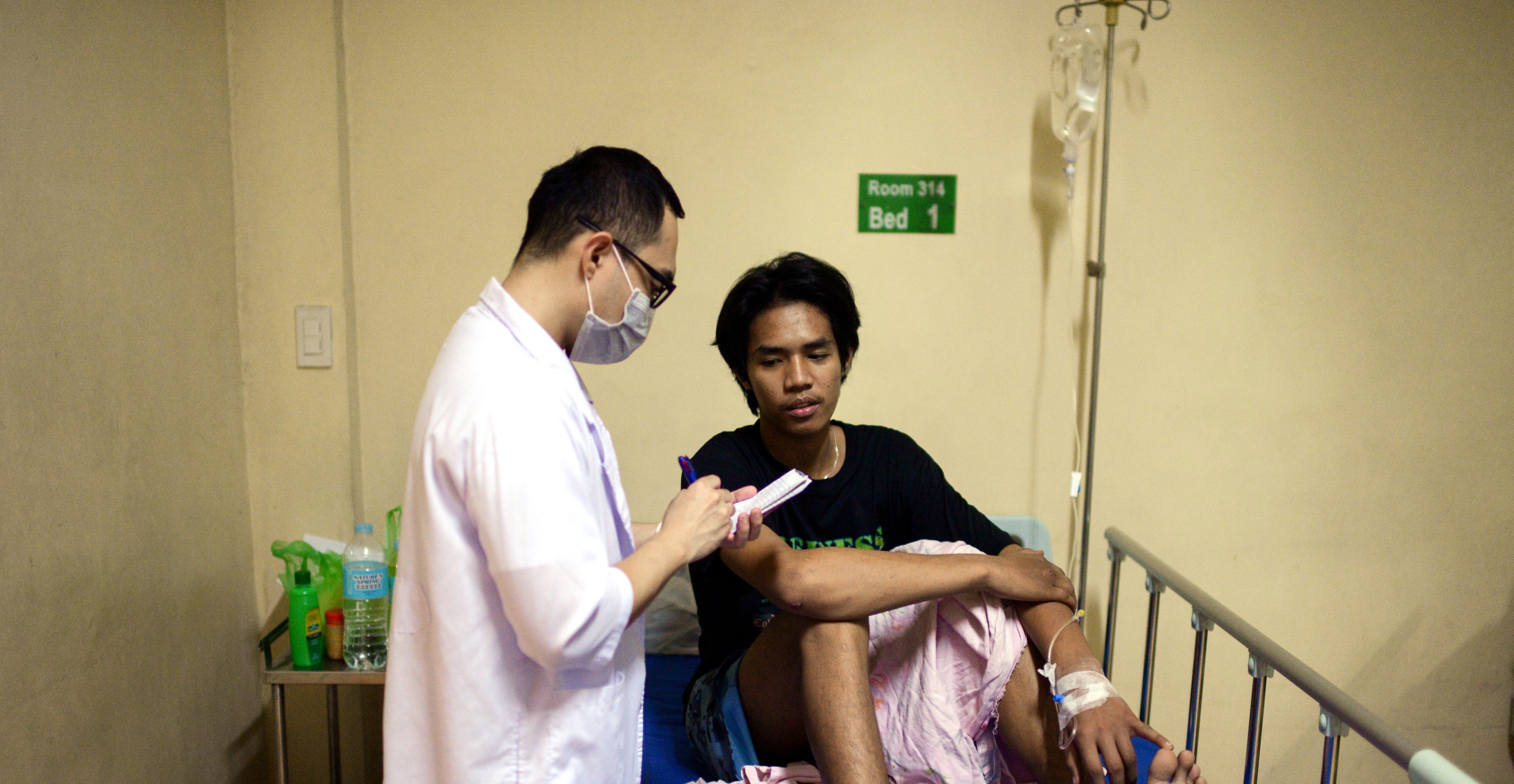What’s the difference between COVID-19 vaccine efficacy and effectiveness?

Many manufacturers have produced COVID-19 vaccines, which vary in efficacy and effectiveness. Image: Braňo/Unsplash
- A vaccine’s efficacy reflects how it worked for a random sample (or a specifically chosen population) in a clinical trial.
- Its effectiveness relates to its use under real-world circumstances, write experts for Yale Medicine.
- The most important thing is to get as many people as possible vaccinated, whichever vaccine they choose, to stop the spread of the virus.
Efficacy is a word that is used frequently in articles about COVID-19 vaccines. But what does it mean? Why don’t they just use the word “effective”?
If you look in a dictionary, these two words have similar meanings: both describe the power to produce an effect or desired result. But doctors and researchers are more specific in their usage of these terms. In the context of COVID-19, both terms represent the percentage of reduction in symptomatic infection among people who are vaccinated; the primary difference between them, really, is the setting.
Efficacy: A clinically measurable result acquired in ideal or controlled conditions, such as in a clinical trial. Some of those controlled conditions may include, for example, that the trial participants are carefully chosen or given specific instructions to reduce their risk of infection.
In a randomized clinical trial, where volunteers are randomly given a vaccine or a placebo, 80% efficacy means people who got the vaccine were at 80% lower risk of contracting the disease in question than those in the placebo group (who did not receive the vaccine). More on that calculation below.
Effectiveness: Used when the result is acquired under normal circumstances in the real world. Because real-world conditions exist outside of the carefully controlled clinical trial setting, effectiveness numbers are harder to predict and can be lower than efficacy numbers.
That’s because multiple factors can impact how well a vaccine will work for a particular person in the real world, including age, underlying medical conditions, and history of prior infections. Other factors might include how much disease activity there is in a town or workplace, and whether there are new variants, as there are with SARS-CoV-2, that react differently to a vaccine than the original virus strain.
Efficacy vs. effectiveness for COVID-19 vaccines
These two words come up often as journalists report on the multiple studies that have tested how well the vaccines work to prevent COVID-19. For example, the Pfizer-BioNTech vaccine had 95% efficacy in the clinical trials that led to it becoming the first vaccine to get an emergency use authorization (EUA) from the Food and Drug Administration (FDA) in December 2020.
How has the Forum navigated the global response to COVID-19?
A few months later, in February, 2021, the Pfizer-BioNTech vaccine was shown to provide strong protection to recipients in the real world, too; it was 94% effective against symptomatic disease (after two doses of the vaccine) in a study conducted in Israel—and published in The New England Journal of Medicine.
It’s important to know that a vaccine’s efficacy reflects how it worked for a random group of people (or a specifically chosen population) in a clinical trial; the performance of the vaccine under real-world conditions may be slightly different.
80% efficacy doesn’t mean you have a 20% chance of getting sick
A popular misconception is that efficacy relates to an individual’s percent chance of infection; some people mistakenly believe that if a vaccine has 80% efficacy, people who receive it will have only a 20% chance of getting infected.
In reality, efficacy means that, out of the people in the clinical trial, those who received the vaccine had an 80% lower risk of developing disease than the group who received the placebo. That percentage is calculated by comparing the percentage of cases of disease in the vaccinated group versus the placebo group (that is, the group who didn’t receive a vaccine) after the trial is completed.
An example: Imagine there were 100 people in the vaccine group, and 100 people in the placebo group. If 10 people in the placebo group became infected, but only 2 in the vaccine group got sick, that means the vaccine has reduced the chances of illness by 80%; thus, it is considered to have an efficacy of 80%.
While it can help to understand the language, experts say the bigger focus—more important than a particular vaccine’s efficacy or effectiveness—is to get as many people as possible vaccinated, whichever vaccine they choose. This could help stop the virus’s spread, bring down the numbers of cases and deaths, and create a degree of herd immunity in the population as whole.
For the best individual protection, you will want to get vaccinated and follow CDC recommendations for wearing a mask, social distancing, staying home when you are sick, and knowing how much virus activity there is in your community.
Don't miss any update on this topic
Create a free account and access your personalized content collection with our latest publications and analyses.
License and Republishing
World Economic Forum articles may be republished in accordance with the Creative Commons Attribution-NonCommercial-NoDerivatives 4.0 International Public License, and in accordance with our Terms of Use.
The views expressed in this article are those of the author alone and not the World Economic Forum.
Stay up to date:
Vaccination
Forum Stories newsletter
Bringing you weekly curated insights and analysis on the global issues that matter.
More on Health and Healthcare SystemsSee all
Judith Love
November 18, 2025








